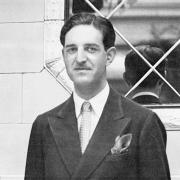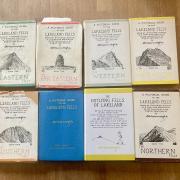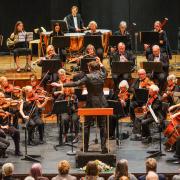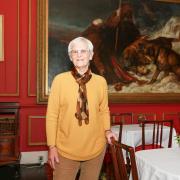Mention footballing greats in the county and men such as Tom Finney, Stanley Matthews and Nat Lofthouse spring to mind, but probably not many have heard of Daniel Woolfall.
Chorley based historian and author Steve Williams is more used to writing about the First World War but last year he was contacted by world governing footballing body FIFA, to do research about a Blackburn man who was the most powerful figure in Lancashire, English and world football for over 37 years. As Steve was to find out, Mr. Woolfall held major positions within the Lancashire Football Association from 1885 to 1918, the Football Association from 1901 to 1918 and with FIFA from 1906 until 1918.
The Woolfall family were in Blackburn as early as 1795 and Daniel was born in the town on the 15th June 1852, his father was a plumber whilst his grand-father was a timber merchant. By 1861, Daniel was living at 57 Church Street and attended Blackburn Grammar School (now Queen Elizabeth’s Grammar School). Several members of the school formed the Blackburn Rovers Football Club in 1875 and Daniel Woolfall was appointed the Club’s representative to the Lancashire Football Association in 1881. He was elected a Vice-President of the County F.A. in 1885 and its President in 1901, a position he held until his death in 1918.
Besides his obvious interest in football, Daniel Woolfall had other interests. Trained as an Accountant, he became the Inspector of Taxes for Blackburn and his skills were put to go use when he was appointed Treasurer of The Football Association in August 1901, duly introducing up to date accounting practices. He was Secretary of the East Lancashire Cricket Club in Blackburn (where Blackburn Rovers played their games at one stage), as well as being Secretary of the near-by Crosshills Tennis Club. In 1874 he joined the Army serving in the 1st Battalion of the Lancashire Rifle Volunteers and was appointed a Lieutenant in its 2nd Battalion in 1885, being involved with the unit until at least 1896.
Throughout his life, Daniel Woolfall had some interesting experiences. He watched the 1881 - 82 F.A. Cup Final when his beloved Blackburn Rovers were defeated 1 - 0 by Old Etonians at the Kennington Oval in London. A year later, he was involved in a tram accident in Blackburn that resulted in one fatality and injuries to thirty others. He was travelling to watch the East Lancashire Charity Cup Final between Blackburn Rovers and rivals Blackburn Olympic at Ewood Park in the town when the tram he was travelling on overturned near Blackburn Infirmary; he sustained an injury to his back and a cut hand. In the early part of the twentieth century, Daniel Woolfall accompanied Blackburn Rovers on several European tours to Germany, Austria and Hungary.
It was Mr. Woolfall’s influence in the world of football that sets him apart from others of his era. As early as the November 1881 he was involved in interpreting the Laws of the Game, with the Lancashire F.A. sub-Committee he chaired drawing up diagrams on how to apply the offside rule. In the 1885 - 86 season, he played his part when the County F.A. lobbied the national body for the legislation of professional football, no doubt influenced by Blackburn Rover F.C. The minutes of the Lancashire F.A. record all the meetings he chaired, including one on the 4th July 1901 held on the 8.45 a.m. train from Manchester to Bakewell - the Executive Committee were going on their annual “away day”.
Nationally, Daniel Woolfall played an active part on the Executive Committee of The Football Association. Besides being Treasurer, he chaired many Disciplinary Commissions involving clubs such as Manchester City and famous players such as Billy Meredith. On the 3rd December 1914, he proposed that the F.A. Cup be abandoned for the season due to the First World War - his proposal was not carried.
It was on the international stage that Daniel Woolfall progressed, being elected to the position of President of FIFA. The Fédération Internationale de Football Association (to give its correct title) was formed in Paris in 1904 to oversee the international competitions of eight European countries, but did not include England or the other ‘home’ nations. However, Daniel Woolfall was elected the second President of FIFA on the 4th June 1906 - a position he held until his death in Blackburn on the 24th October 1918. He set up the first noteworthy international football competition with a tournament at the London Olympic Games in 1908, won by Great Britain and the final being refereed by John Lewis - founder of Blackburn Rovers F.C. He was a Jurist at the 1912 Olympics held in Stockholm, as well as overseeing the football tournament which Great Britain again won. During his tenure at FIFA, Daniel Woolfall saw more countries such as South Africa, Chile, Argentina and the United States of America join the burgeoning world body, but progress was curtailed by the War that lasted from 1914 to 1918. It is said that his successor, Frenchman Jules Rimet, took Daniel Woolfall’s idea forward and introduced the first football World Cup in 1930.
Daniel Burley Woolfall married Eleanor Loveridge in London on the 24th September 1884. They had three children, all born in Blackburn - two survived their parents, but Daniel and Dorothy did not have children themselves so the Woolfall line is now extinct. Daniel Woolfall is buried in Blackburn Cemetery, close to the grave of John Lewis. In his will published in 1919, his estate was valued at £3,687 (some £846,300 at today’s economic value).
Whilst there have been many famous Lancastrians over the years, it seems that Daniel Woolfall is little known in the county and his contribution to world football not widely recognised. However, Steve’s research will be used by FIFA for a new 3,500 square metre museum FIFA are opening in Zurich in the Spring of 2016.
Summing up the work for FIFA, Steve said “Whilst I have researched and written about hundreds of soldiers in the First World War, I’ve never been an Official Biographer. To do it for a body such as FIFA and about such an interesting person in Daniel Woolfall has been a great experience and privilege”. Steve is currently talking to FIFA about a First World War project, so we could be hearing more from him in the future.
Steve Williams is 62 years of age and a retired Company Director. Brought up in Blackburn, he spent thirty years as a football referee and is now a well known across the County for his interest in the First World War. He is heavily involved with the Chorley Pals Memorial Trust and the Chorley Remembers project, as well as giving talks and organising battlefield trips. His website is www.stevewilliamstalks.co.uk



























